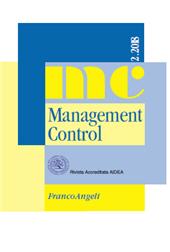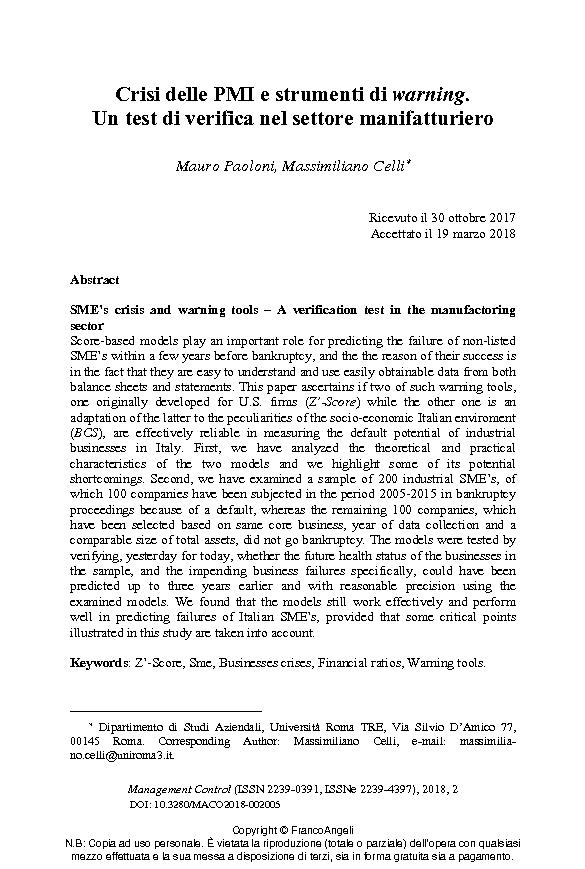Crisi delle PMI e strumenti di warning : un test di verifica nel settore manifatturiero
85-106 p.
Score-based models play an important role for predicting the failure of non-listed SME's within a few years before bankruptcy, and the the reason of their success is in the fact that they are easy to understand and use easily obtainable data from both balance sheets and statements. This paper ascertains if two of such warning tools, one originally developed for U.S. firms (Z'-Score) while the other one is an adaptation of the latter to the peculiarities of the socio-economic Italian enviroment (BCS), are effectively reliable in measuring the default potential of industrial businesses in Italy. First, we have analyzed the theoretical and practical characteristics of the two models and we highlight some of its potential shortcomings. Second, we have examined a sample of 200 industrial SME's, of which 100 companies have been subjected in the period 2005-2015 in bankruptcy proceedings because of a default, whereas the remaining 100 companies,
which have been selected based on same core business, year of data collection and a comparable size of total assets, did not go bankruptcy. The models were tested by verifying, yesterday for today, whether the future health status of the businesses in the sample, and the impending business failures specifically, could have been predicted up to three years earlier and with reasonable precision using the examined models. We found that the models still work effectively and perform well in predicting failures of Italian SME's, provided that some critical points illustrated in this study are taken into account. [Publishers' text].
Fa parte di
Management Control : 2, 2018-
Articoli dello stesso fascicolo (disponibili singolarmente)
-
Informazioni
Codice DOI: 10.3280/MACO2018-002005
ISSN: 2239-4397
PAROLE CHIAVE
- Z'-Score, Sme, Businesses crises, Financial ratios, Warning tools



